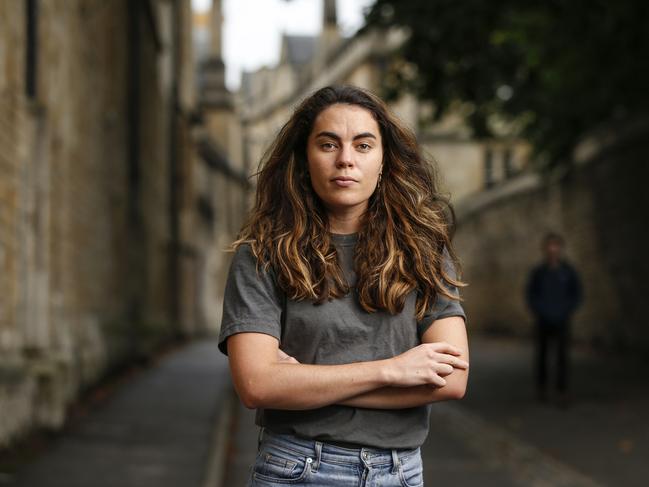Brisbane woman’s push to be infected with COVID pays off
The UK government has given the green light to controversial tests that could see Brisbane researcher Sophie Rose deliberately infected with coronavirus, which could also speed up the search for a vaccine by six months.
National
Don't miss out on the headlines from National. Followed categories will be added to My News.
A coronavirus vaccine could be available six months earlier after a groundbreaking study proposed by a Brisbane public health student was approved.
Sophie Rose, a Brisbane Girls Grammar graduate, was behind a campaign to have volunteers deliberately infected with coronavirus to fast-track the testing of vaccines.
Now the British government has given it the green light.

Ms Rose was a key figure in the push for the trials as founder of campaign group 1DaySooner, which found 37,000 volunteers for trials and lobbied governments across the globe.
“I’m really excited. Given what’s at stake we need to keep testing vaccines until we find the best vaccine that we can have,” she said.
“It’s really exciting, I’m really pleased and proud of all our team.”
The epidemiologist, who is studying at Johns Hopkins Bloomberg School of Public Health, has helped organised a coalition of public health heavyweights from across the world.
The trials will be conducted on a range of vaccines, which will help move them along the testing pathways, speeding up approvals by up to six months.

The Oxford vaccine, the world’s front runner, was not involved in the challenge trials.
It is already in stage three trials with results likely to come back before Christmas.
However, there are dozens of other vaccines at various stages of testing, including the University of Queensland’s candidate, that could benefit from the challenge studies.
And while a vaccine such as the Oxford candidate may be approved, the studies will be able to check which other vaccines would be more effective, Ms Rose said.

The challenge trials were also important as lockdowns reduced the amount of virus circulating in a community.
That success makes it harder for scientists to work out if people were not infected because the vaccine worked or simply because they did not come into contact with a virus carrier.
“Say for example the Moderna vaccine works, we can only produce so many doses of that at a time,” she said.
“And the more people we have vaccinated then the less vaccine testing we can do because people have already been exposed to the virus.”
Oxford researchers had to test in the United States, Brazil and South Africa to find a wider pool of the virus because, until recently, lockdowns had limited the spread of COVID-19 in Britain.

1 Day Sooner said in a statement that it welcomed the British government move.
“These trials will help make COVID-19 vaccines equally accessible to everyone around the world, regardless of race or nationality by quickly narrowing the field of promising vaccine candidates,” the group said.
“We are glad to have had the opportunity to provide input into the preparations. We hope and expect that volunteer voices will be further incorporated into publicly available protocols for these studies.”
The Medicines and Healthcare products Regulatory Agency in the UK will sign off on the start of any trials.
Doses of the live virus will be prepared by December, paving the way for the trials.
stephen.drill@news.co.uk
Originally published as Brisbane woman’s push to be infected with COVID pays off
